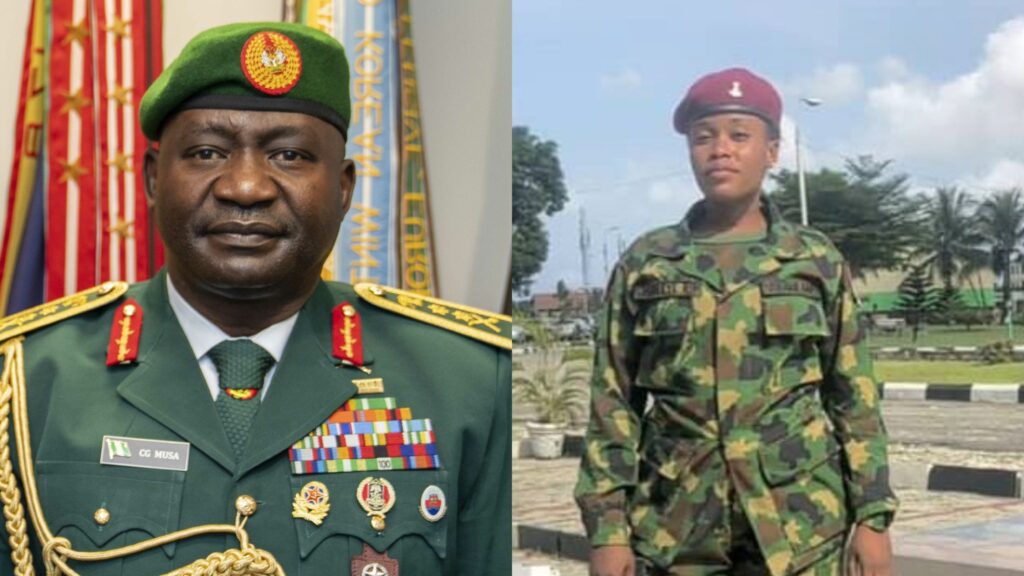
Lagos – A former Nigerian soldier, Private Ruth Ogunleye, who was relieved from service after accusing a senior officer, Colonel I.B. Abdulkareem, of sexual harassment, has revealed how superiors in the army refused to listen to her when she first reported her rape case.
During an interview on an AIT programme on Wednesday evening, Ogunleye levelled allegations against Chief of Defence Staff, General Christopher Gwabin Musa, and other superior officers, saying they deliberately avoided thoroughly investigating her rape case due to the accused person’s seniority in the army.
The discharged female soldier said: “I sought intervention from people like General C. G. Musa, the current Chief of Defence Staff. I told him. I told so many officers. I sought redress but nothing was done because he is my senior, and nobody was ready to give me a listening ear.
“I exhausted all the procedures; I sought redress using Section 179 of the Armed Forces Act and nothing was done. He would inject (me) and throw me inside a psychiatric hospital.”
In January 2024, Ogunleye alleged via her TikTok handle that Colonel I.B. Abdulkareem, Colonel G.S. Ogor, and Brigadier General I.B. Solebo had made her life unbearable.
She accused Abdulkareem of making repeated attempts to assault her, administering injections against her will, forcibly removing her from her residence, and confining her to a psychiatric hospital for several months after she rejected his sexual advances.
Her allegations caused widespread outrage in Nigeria and prompted the women’s minister to discuss the case with the army chief.
However, the Director of Army Public Relations, Major General Onyema Nwachukwu, said Ogunleye’s allegations lacked merit.
The army spokesperson said that after an exhaustive review of the facts, testimonies, and evidence presented, it was determined that Abdulkareem did not commit the offences alleged by Ogunleye.
Nwachukwu stated that medical reports following an evaluation at the National Hospital in Abuja indicated that Ogunleye was suffering from a condition that rendered her medically vulnerable.
However, women’s rights activists have called for an independent investigation.
“The army is known for not wanting to wash its dirty linen in public,” Hadiza Ado, founder of Women and Children Initiative, told the BBC.
“If the army investigation are saying she had a medical condition which affects her, then for how long was she in the service with that condition, why coming out to say it now that she was dismissed?” she asked.
